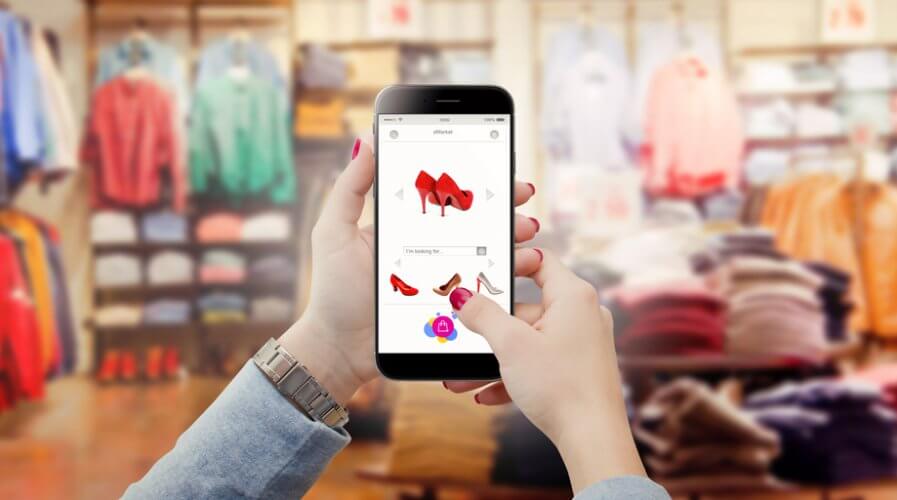
The adoption of IoT will move retailers up the digital maturity curve. Source: Shutterstock
How IoT can amplify your e-commerce business
MACHINE-TO-MACHINE interaction is going to revolutionize how we use the internet. The Internet of Things (IoT) is already in the works but has yet to show its maximum potential.
IoT is basically everyday devices transacting an enormous amount of data to automate processes in our lives. This is fundamentally going to change how everything becomes automated, including consumerism.
E-commerce businesses that are pushing forward with new technologies will be able to capitalize on the growth of IoT — here are some of the use cases pioneers in the industry are currently exploring:
# 1 | Secured logistics
Not unexpectedly, one of the biggest headaches for retailers would be undelivered goods. That is principally deadweight loss to a business.
Not only does it create unhappy customers, but it will also incur additional costs for the logistics operations.
Incorporating IoT in logistics will give both the business and its consumers peace of mind. Cloud-based technologies such as GPS and RFID (radio frequency identification) will be able to let retailers and buyers know exactly where the goods are.
With IoT, more data that affects logistics management could also be presented to stakeholders for the sake of assurance.
The technology could report data on traffic status, weather, location, and identities of the delivery person as well.
#2 | Automated inventory systems
Retailers, like all businesses, need to keep an eye on what’s going in and out of its stockpile.
Much of sales and marketing meetings is to ensure supply meets demand and IoT technology could just be the answer.
Tools such as IoT sensors and RFID tags incorporated in inventory systems could automatically inform enterprise resource planning (ERP) systems.
The real-time feature of IoT will be able to ensure retailers are replenishing stocks in a timely manner.
The last thing that an ERP system would need is human error and having IoT in the picture is going to keep the business updated on its inventory easily.
#3 | IoT-driven e-commerce sites
By now, we already know the processes that IoT can automate on the back-end. The resources it will save is going to let retailers focus on parts of the business that requires human dexterity.
Though, there are also parts of an e-commerce front-end that will be able to leverage on IoT. When making a purchase, the consumer user experience is crucial.
Most of the time, consumers add to cart what appears to match their search the most and what’s most convenient. An IoT-driven e-commerce site will be able to respond more accurately to specific consumer preferences.
Being able to supply exactly what buyers demand, even before they know it, is going to be a competitive edge. Retailers may be able to capitalize further with bundling other goods that the IoT system knows buyers need.
The personalized touch will be something that consumers appreciate. So, the use of IoT will mean a subsequent increase in customer satisfaction and engagement too.
In our increasingly connected world, IoT will be the senses and big data will be the fuel.
The e-commerce industry is expected to become the future of retail as digital penetration grows. Online businesses that want to stay ahead of the game will need to harness the power of IoT and big data.
READ MORE
- 3 Steps to Successfully Automate Copilot for Microsoft 365 Implementation
- Trustworthy AI – the Promise of Enterprise-Friendly Generative Machine Learning with Dell and NVIDIA
- Strategies for Democratizing GenAI
- The criticality of endpoint management in cybersecurity and operations
- Ethical AI: The renewed importance of safeguarding data and customer privacy in Generative AI applications




